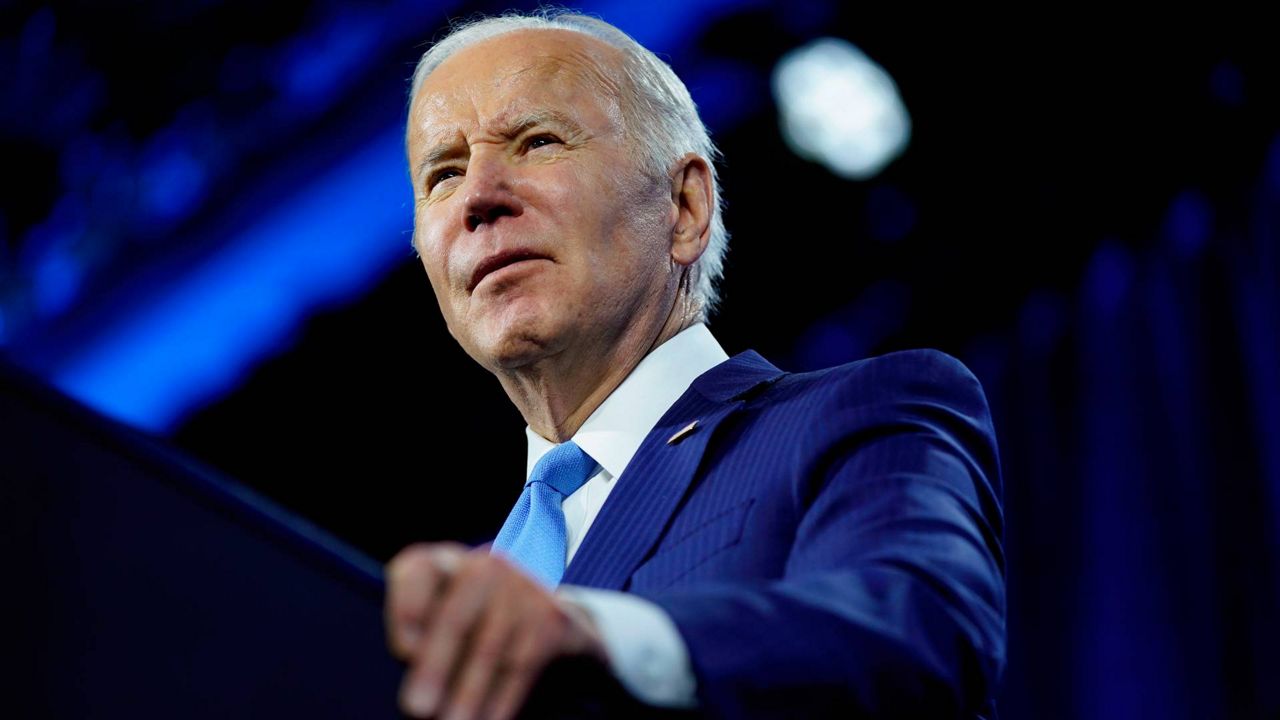The White House will hold a conference on hunger, nutrition and health in September to notch progress on the Biden administration’s goals of ending hunger, improving nutrition and physical activity and reducing diet-related diseases.
The gathering will be the first of its kind by the White House since 1969, when then-President Richard M. Nixon when then-President Richard M. Nixon aimed to create a national strategy to end hunger in the United States. Biden's White House described that gathering as a “pivotal event” that influenced the U.S. food policy agenda for the next 50 years and said President Joe Biden “sets out to do the same with this year’s conference.”
“At the conference, we will release a new national strategy to eliminate hunger and reduce diet related illnesses such as heart disease and eliminate disparities,” White House press secretary Jen Psaki told reporters Wednesday afternoon. “The strategy will catalyze the public and private sectors around a coordinated strategy to accelerate progress and drive transformative change in the United States.”
The Biden administration has set a goal of ending hunger and increasing healthy eating and physical activity in the U.S. by 2030 so that fewer people are afflicted with diabetes, obesity, hypertension and other diet-related diseases.
Anti-hunger and nutrition advocates, food companies, health care representatives, government officials and others will help the administration develop a national plan outlining how to achieve those goals, the White House said.
“Hunger, diet-related disease, and the disparities surrounding them impact millions of Americans, and the COVID-19 pandemic put a spotlight on the urgency of addressing these issues,” said Susan Rice, the president’s adviser for domestic policy. “No one should have to wonder where their next meal will come from.”
According to the U.S. Centers for Disease Control and Prevention, the average American does not have a healthy diet. The agency works to reduce four main preventable risk factors for chronic disease, including poor nutrition; the others are tobacco use, lack of physical activity and the excessive use of alcohol.
At least 19% of Americans between the ages of 2 - 19 have obesity, a number that rises to 40% for adults, per data from the CDC. Obesity increases the risk for heart disease, diabetes, stroke, some cancers and can lead to other health complications.
Food insecurity is another challenge the administration hopes to address in the September conference. In 2020, an estimated 1 in 8 Americans – roughly equivalent to 38 million people – did not have food security, which the Department of Agriculture defines as having “enough food for an active, healthy life.”
A number of notable food-related organizations and individuals applauded Wednesday’s announcement, including celebrity chef José Andrés, the founder of nonprofit World Central Kitchen.
"For the first time in 53 years, @WhiteHouse will bring Americans together to improve how we feed ourselves, address inequity in our food system, and make hunger a thing of the past," Andrés wrote on Twitter. "Using food to solve our greatest challenges…building longer tables where everyone is fed!"
Feeding America CEO Claire Babineaux-Fontenot said the company is “excited to partner with the White House on this conference to help achieve the goal of ending hunger by 2030.”
“We have seen what works to provide food security to millions of our neighbors in need and must come together to take urgent action to continue the progress we have seen in 2021,” she continued, adding: “This is another moment where we must ensure our forward progress continues so that no one in America goes hungry.”
The American Society for Nutrition similarly lauded the announcement, adding that any policy changes “have the potential to address long-standing health inequities and disparities such as these and reduce health care costs.”
“The outcomes of this conference should highlight the research gaps to help shape the future of nutrition research and advance nutrition science,” the organization’s statement added.
ASN also pointed out the health disparities facing minority and underrepresented communities. In a letter sent to the Biden administration in late April, ASN president Paul Coates wrote: “One of the nutrition-related challenges faced by many low-income populations, including underrepresented groups, that has far-reaching consequences including diet-related chronic diseases is food and nutrition insecurity.”



